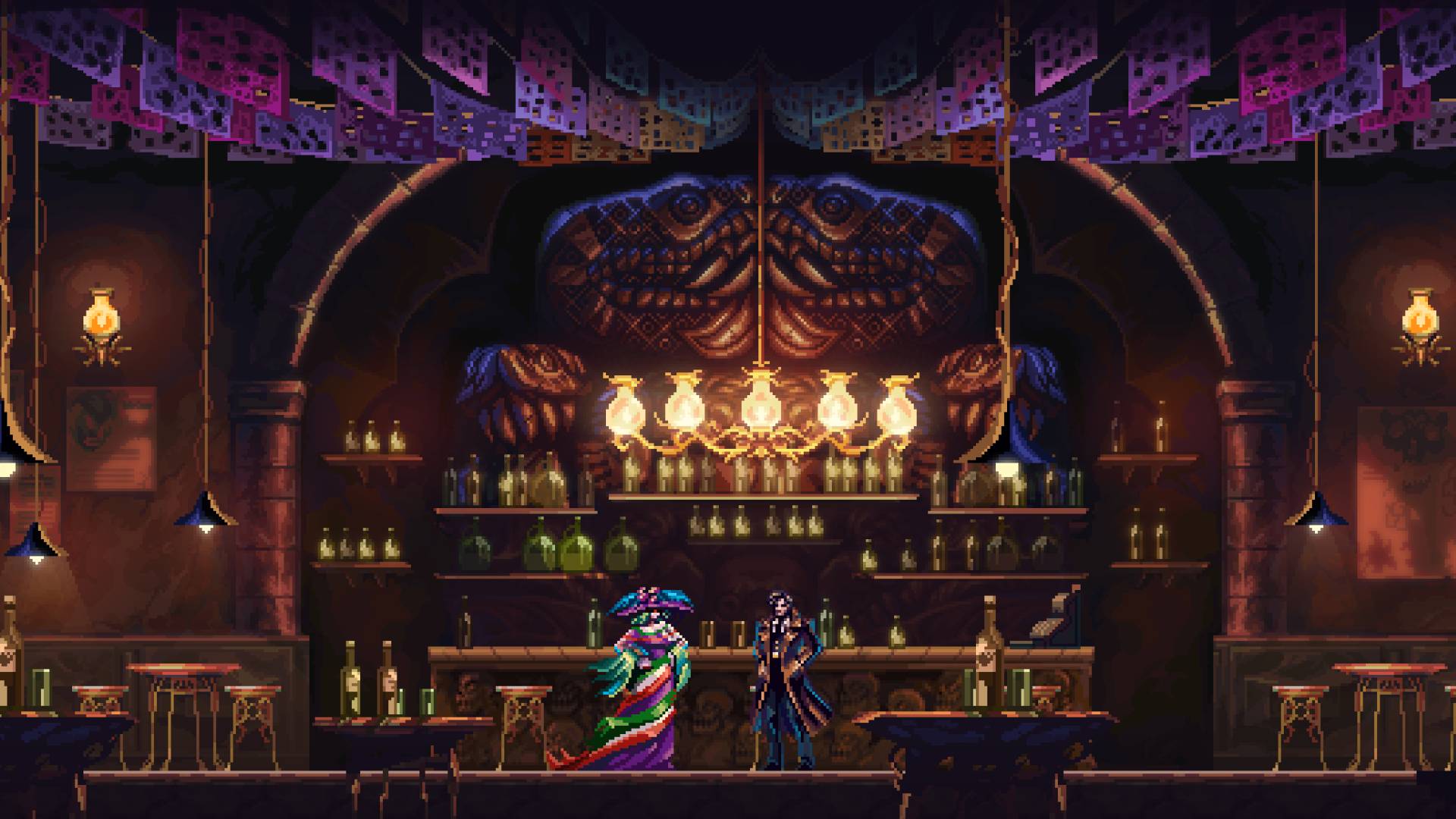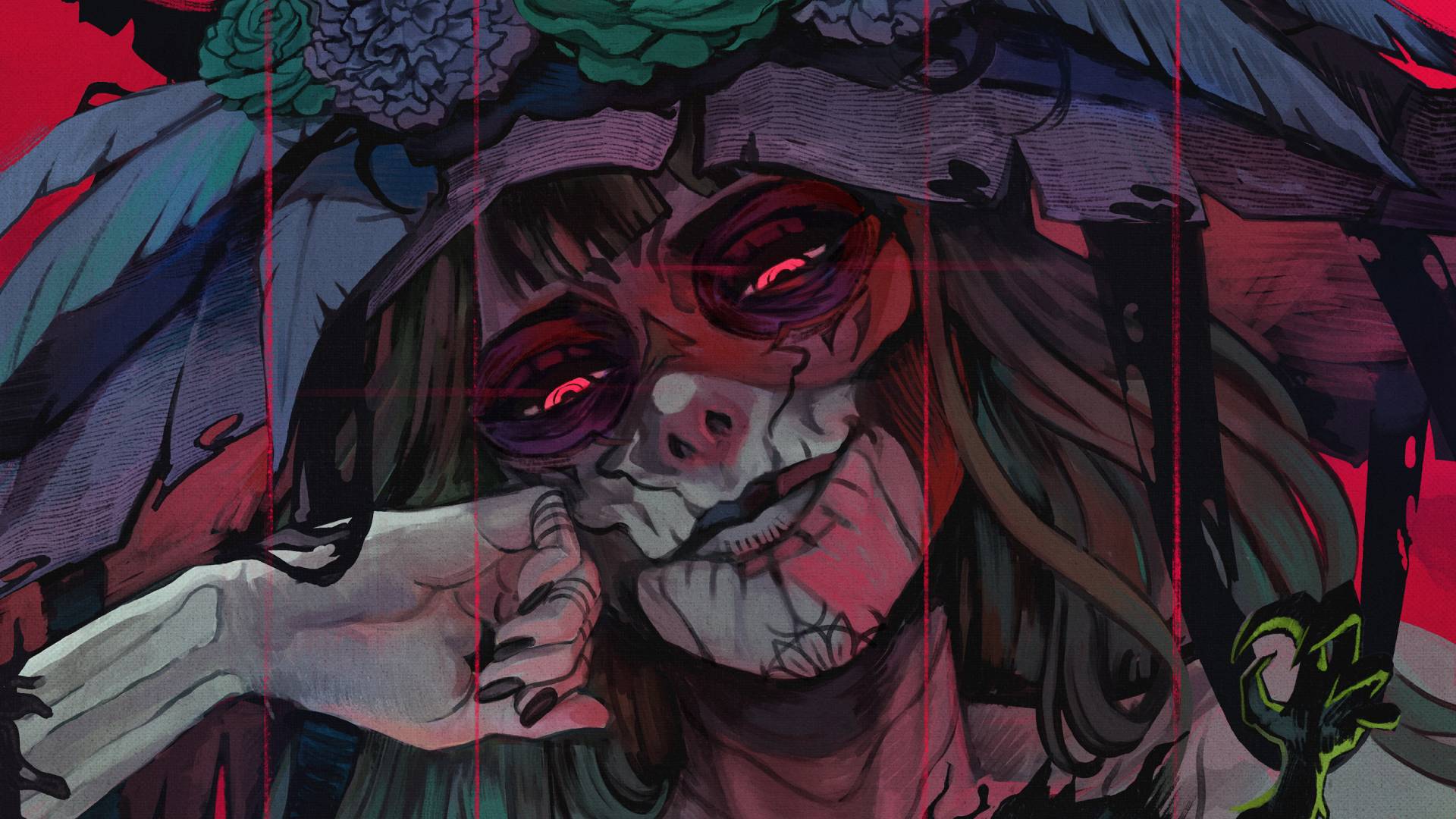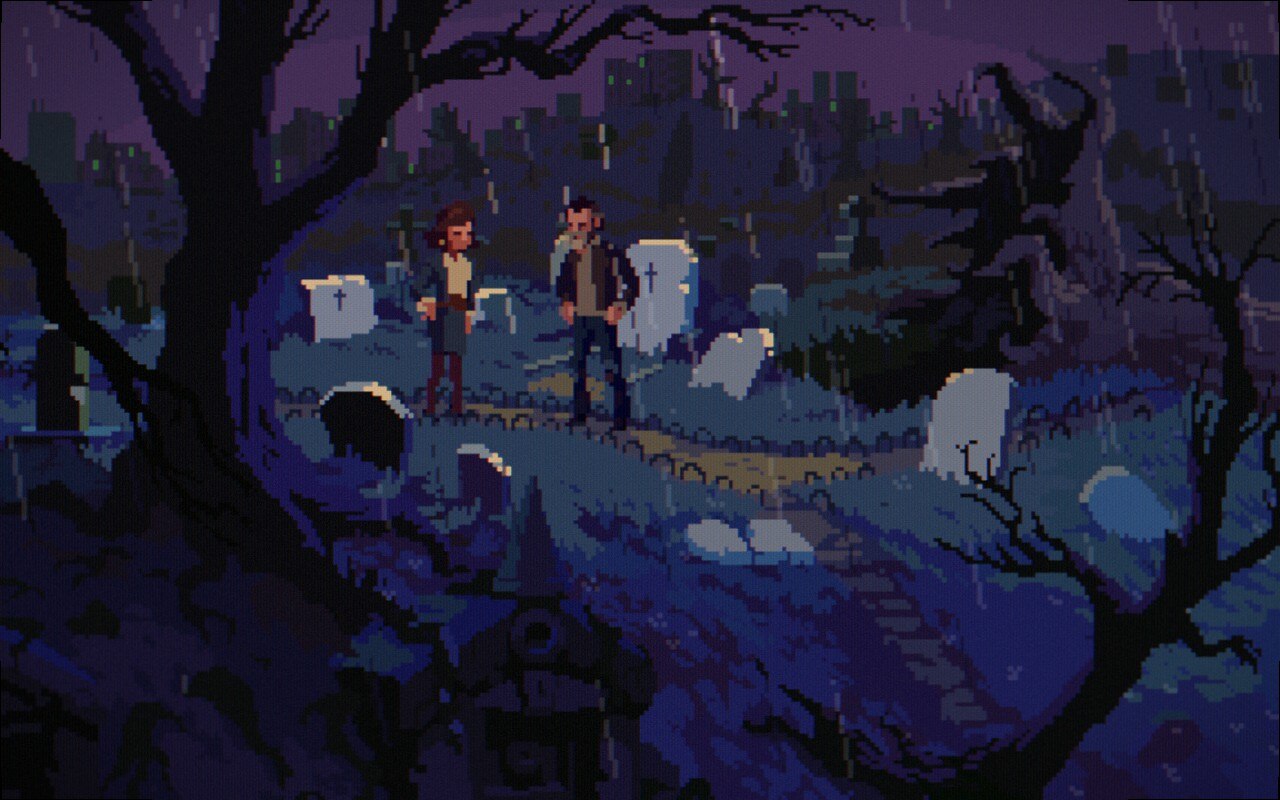Mariachi Legends brings the challenge of 2D Ninja Gaiden to Mexico's streets
This blend of Mexican and Japanese influences looks unique.
What if Ninja Gaiden was set in Mexico, and instead of a ninja, you played a detective who made a cursed deal with Death to save your sister and take down a sinister criminal gang? Okay, so the premise might differ slightly from Ninja Gaiden's, but the combat-heavy action platformer's influence in Halberd Studios' Mariachi Legends is clear.
"We’re a small studio here in Guadalajara, Mexico, and we like to use our roots to create stuff," Halberd Studios CEO and creative director Miguel Hasson says. "For this particular game, we wanted to do something combat-oriented. It’s a simple game, but we wanted to make a game on the shorter side that's a tight, compelling experience."
Few developers would describe their game as "simple", especially one that blends cultural aspects from Mexico and Japan, tackles fast-paced combat in a beautifully-drawn side-scrolling sprite-based world, and uses an adaptive difficulty that combines roguelike elements. Still, it speaks to Hasson and the team’s humility when discussing Mariachi Legends, an already beautiful game, despite being so early in development.
When a game is small, it tends to place a magnifying glass over its flaws. Halberd Studios is focusing on that oh-so-easy-to-mess-up difficulty-to-frustration ratio to ensure Mariachi Legends' combat delivers. "One of our references was Katana Zero, where you keep failing and getting angry, but you get to retry so fast that it makes the whole experience so smooth," Hasson says. "It's a matter of experimenting until you have a really intense feeling, but you have the game mechanics in place so that you can digest that as a player. It's one of the hardest things we've ever tried."
Mariachi Legends wears its influences on its sleeves, and Hasson mentions Ninja Gaiden and Castlevania throughout our conversation—though the team is looking more broadly, too. Hasson talks about combos and air juggling from Devil May Cry and unique area bosses akin to Resident Evil. He also talks about more recent efforts from indie studios, such as Bloodstained: Curse of the Moon and Shovel Knight, which have rewarding gameplay loops without a massive budget.

"A lot of [Mexican] developers try to do something Mexican for their first game, but it’s not a great idea because people are super tired of that here," Hasson says. "So we avoided that for our first game, [9 Years of Shadows], but for our second, we wanted to go in and try and do the thing that no one seems to nail. It's a difficult choice because it's risky, but at the end of the day, the best Mexican-themed game is Guacamelee, and that game is Canadian. How can that be? You couldn't say that about Japanese games, so we felt it's time we tried to fix that."
Halberd celebrates Mexican culture throughout Mariachi Legends, from the Day of the Dead-inspired outfits on display to cooking Mexican dishes on intricately designed pixel art plates, and it's clear the dev team hasn’t shied away from grittier topics like gang culture either. "It's very real here," Hasson says. "I think most of us have a 'crime' story, but there are also cool aspects to that culture. Not everything sucks. It's a weird combination here in Mexico because you get these very grim subjects mixed with something satirical and comical, so we tried to embed that into the game. It can be grim one moment and light the next."
Keep up to date with the most important stories and the best deals, as picked by the PC Gamer team.

Still, while Mexico is front and center in Mariachi Legends, its design draws from classic Japanese games. Hasson doesn't want that influence to be lost, and it's why the announcement trailer features a Japanese voiceover.
Though, Hasson says you don’t have to go too far in Mexico to run into Japanese culture. "[It's] almost to the point where it's embedded into parts of Mexican culture. Dragon Ball is almost a religion. The intermingling is bizarre, but it's somewhat magical as well. We’re from Jalisco, Guadalajara. Mariachi was invented here, tequila was invented here, but there are so many different influences too. We have Asian culture, French, Arabic, and Spanish all mixed together. We wanted to explore that narrative."
So when you play Mariachi Legends, look out for those fusions, which will be tricky given how much you'll also need to focus on making it through these enemy-stuffed levels alive.

